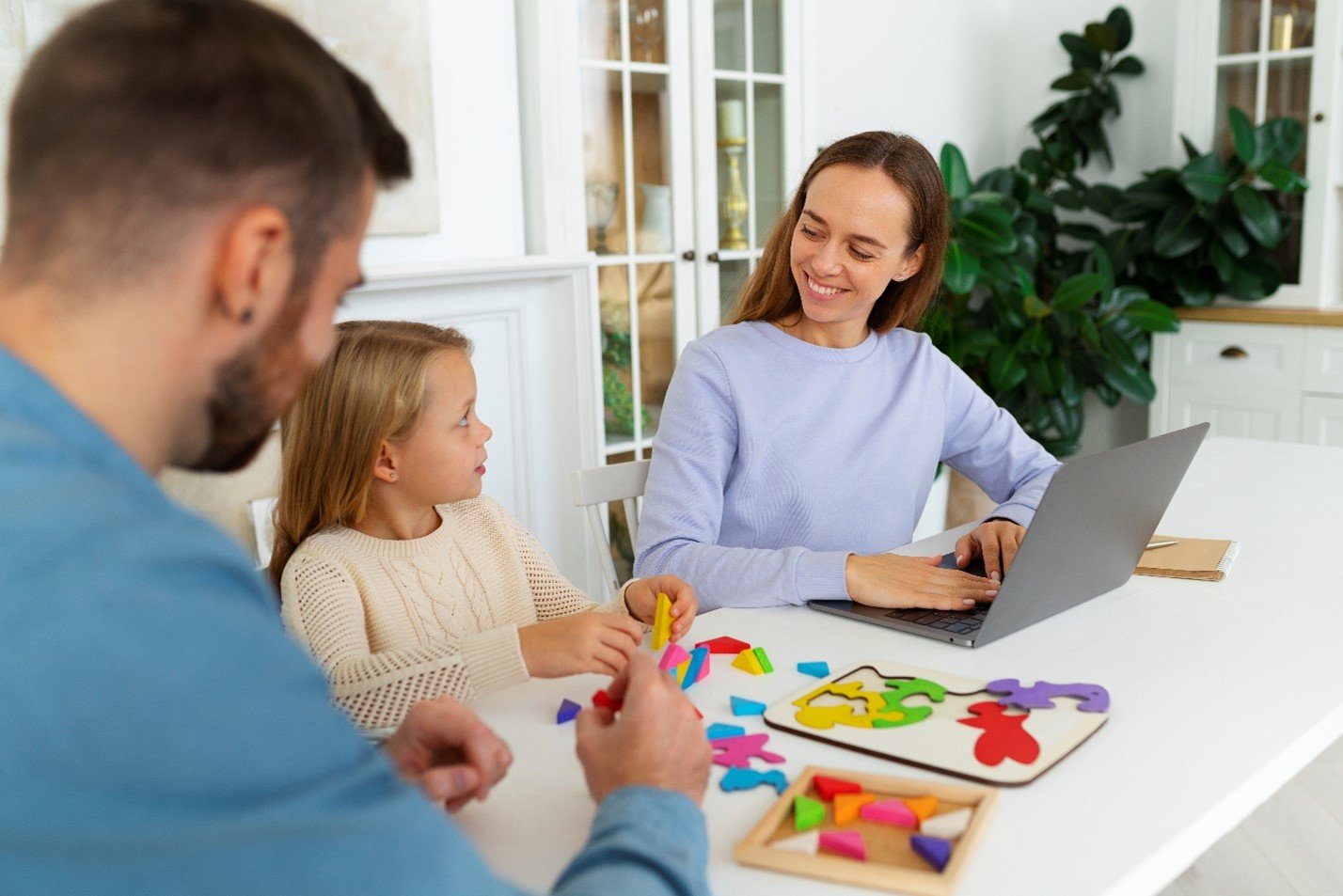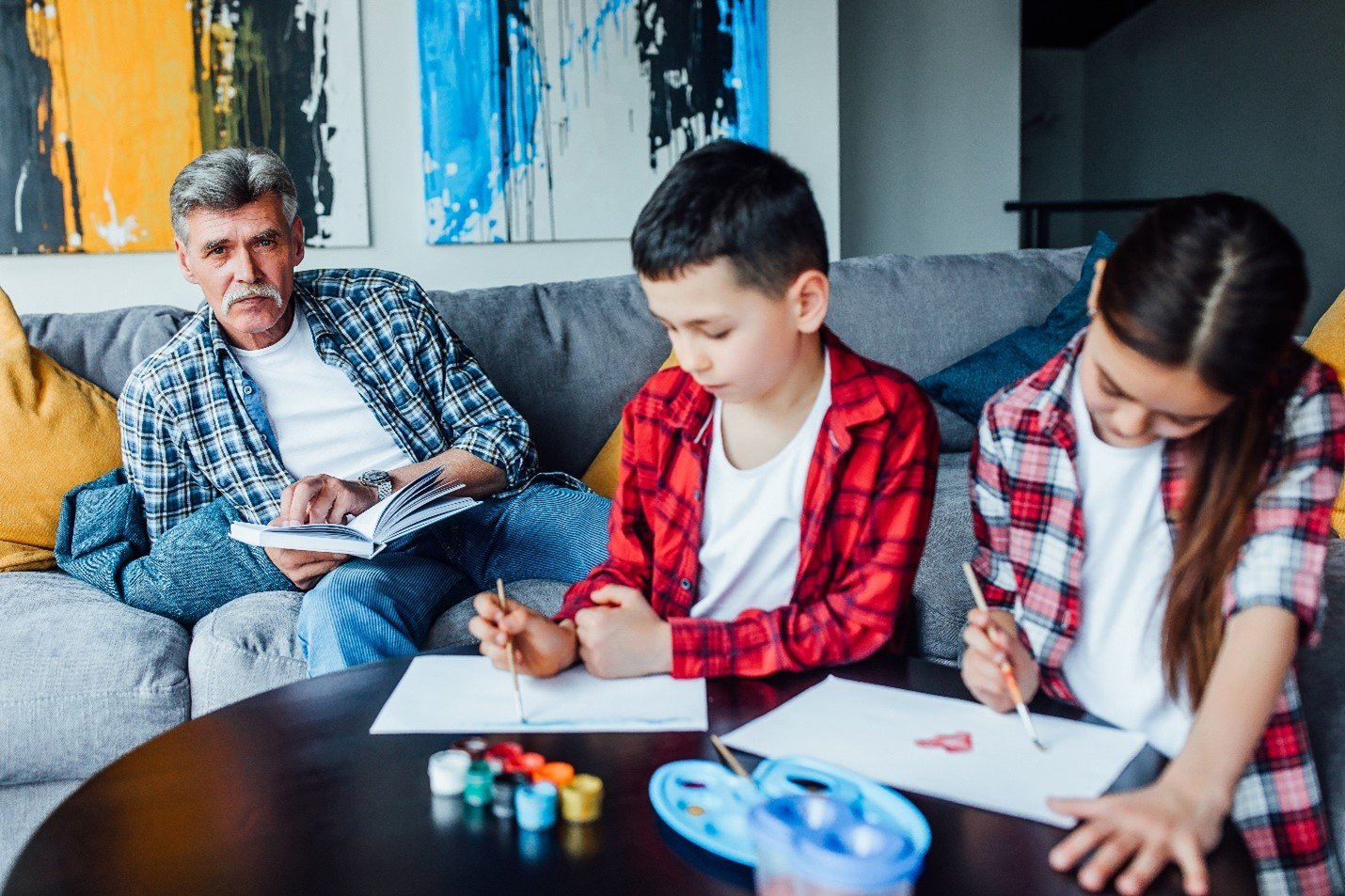ADHD Coaching for Parents and Families
I still remember the first time I said the words “ADHD coaching” out loud to a tired parent in my clinic. (They had driven in from a suburb outside San Diego, yes, California, and they looked like they hadn’t slept in days.) I said, “ADHD coaching can help families,” and their face oh man softened like a knot finally loosening. Wait, no… actually, it wasn’t magic. It was the slow, steady work after that first breath: tiny routines, clear agreements at home, and one small win after another.
Hi, I’m an ADHD coach at Heal-Thrive. I work with parents and whole families who are burned out, worried, and desperate for tools that actually fit their lives. Coaching isn’t therapy and it isn’t medical advice (we’ll cover how coaching works with other treatments later). It is practical support. It is structure that bends to your real home, not some perfect household from a magazine.
Here’s the simple truth: parenting a child with ADHD is messy and brave. You will try things that flop. You will feel guilty. You will celebrate tiny victories that feel huge. I’ve seen parents who could not get their child to start homework, switch to a system where homework happened with less arguing and more calm, in weeks, not years. And no, we didn’t force them to “try harder.” We changed the environment, the expectations, and the follow-through.
If you’re reading this from California, or anywhere really, and you’re wondering whether ADHD coaching for parents and families could help you, you’re in the right place. This article will walk you through what parent and family coaching looks like, the real problems families face, and practical, research-informed steps you can try tomorrow.

Why Families Need ADHD Coaching
Here’s the thing: ADHD doesn’t just affect the child who has the diagnosis. It ripples across the entire family. (Sometimes it feels like a storm that everyone is stuck in, not just one kid.) I’ve sat with parents who thought, “Maybe I’m failing… maybe I’m just not strict enough.” And I’ve had to pause them no, it’s not about being stricter. It’s about understanding ADHD as a brain-based difference and learning new ways to respond.
Let me break down the key reasons families turn to ADHD coaching:
- Emotional Overwhelm & Parental Stress
Parents often feel exhausted and guilty. Coaching creates a space to breathe, learn coping strategies, and find small wins that reduce the chaos.
- Time & Commitment Demands
Between school, work, therapy appointments, and daily routines, families often feel there’s just no bandwidth left. Coaching introduces simple systems that make life less overwhelming.
- Resistance to Change
Kids (and sometimes spouses!) resist new structures. Coaching equips parents with communication strategies so changes actually stick.
- Family Dynamics & Communication Barriers
ADHD can lead to constant arguing, misunderstandings, and blame. Coaching helps the family create new ways of talking less shouting, more problem-solving.
- Lack of Immediate Results
Parents often want quick fixes (I get it, the stress is heavy). Coaching reframes progress: it’s about steady improvement, not overnight transformation.
- Access to Qualified Coaches
Especially in smaller towns outside big California hubs, finding ADHD specialists can be tough. That’s why online coaching options matter.
- Balancing Coaching with Other Treatments
Many families juggle medication, therapy, school support, and coaching. The good news? Coaching fits alongside other supports it’s not “either/or.”
- Parental Self-Doubt & Guilt
Parents often blame themselves. Coaching interrupts this cycle with education, validation, and action plans.
- Adapting to Individual Needs
No two kids with ADHD are the same. Coaching teaches parents to adapt strategies to their child’s unique strengths and challenges.
- Stigma & Misunderstanding
Relatives, neighbors, even schools sometimes don’t “get it.” Coaching helps parents advocate for their children with confidence.
- Managing Co-occurring Conditions
Anxiety, learning disabilities, or mood challenges often show up alongside ADHD. Coaching teaches flexible strategies that take these into account.
- Sustaining Long-Term Engagement
Starting is easy. Sticking with new systems over months is hard. Coaching builds accountability and momentum so parents don’t give up when it gets hard.
Bottom line: Families need ADHD coaching because parenting in an ADHD household is different. It requires specialized strategies, not just “try harder” advice. And when parents feel supported, the whole family stabilizes.
Real Client Examples
Stories stick more than theories, right? So let me share a few anonymized examples from families I’ve coached. These aren’t “perfect case studies” , they’re messy, human, and real.
Client Story #1: The Homework Battles
One mom from Los Angeles came to me nearly in tears. Every evening ended in shouting matches over homework. Her 10-year-old son, diagnosed with ADHD, would scream, stall, and even hide under the table. She told me: “I feel like the bad guy in my own house.”
Through coaching, we broke the cycle. We built a 20-minute “focus sprint” routine, paired with a reward (screen time after, but only if he tried the sprint). Within a few weeks, homework went from a nightly war to a mostly peaceful process. Was it perfect? No. But she said, “I finally feel like we can breathe.”
Client Story #2: The Late Mornings
A father in San Diego was struggling with chaotic mornings. His teenage daughter had ADHD and co-occurring anxiety. She couldn’t get out of bed, and the whole family left the house late every day. Stress levels were sky-high.
We introduced a visual checklist (laminated, with dry-erase markers) and shifted bedtime routines. Coaching helped him support her without nagging. Two months later, mornings weren’t calm every day , but the family cut their “late arrivals” by half. That’s success in ADHD coaching: measurable, but realistic progress.
Client Story #3: Parent Guilt & Confidence
A couple from Northern California came to me saying: “We’re failing our son.” They felt constant guilt for yelling, for losing patience, for not “fixing” things. Coaching helped them reframe ADHD , not as a parenting failure, but as a family challenge requiring new tools. We built weekly parent “check-in” meetings where they adjusted strategies together. They told me, “For the first time, we feel like a team, not enemies.”
The point? ADHD coaching isn’t about eliminating all struggles. It’s about reducing friction, giving parents back their confidence, and helping families find a rhythm that works for them.
Practical ADHD Coaching Strategies for Parents

Alright, let’s get into the heart of it: what can parents actually do? Coaching is powerful because it doesn’t stay theoretical, it turns knowledge into step-by-step actions you can practice at home. And remember, it’s not about being “perfect parents.” It’s about building systems that work enough of the time to reduce stress and create predictability.
Here are core ADHD coaching strategies for parents and families:
- Create Predictable Routines (But Flexible Enough to Work)
- ADHD brains thrive with structure, but too much rigidity can backfire.
- Use visual schedules or family calendars, place them in the kitchen or another high-traffic spot.
- Morning and bedtime routines should be short, visual, and repeatable.
Coaching tip: Don’t aim for 100% compliance. If your child follows the routine 70% of the time, that’s a win.
- Break Tasks into “Micro-Steps”
- Homework, chores, or even getting dressed can overwhelm kids with ADHD.
- Break things down into bite-sized actions: “Put socks on,” “Pack folder,” “Brush teeth.”
- Use timers (like the Pomodoro method) for short bursts of focus.
Coaching tip: Celebrate each small step, not just the finished task.
- Strength-Based Parenting
- Kids with ADHD often hear constant criticism. Coaching shifts the focus toward strengths.
- Catch your child doing something right, and name it. (“I noticed how you started your homework without me asking. That was awesome.”)
- Build on what motivates your child instead of fighting against what frustrates them.
Coaching tip: Praise effort, not just outcome.
- Family Communication Reset
- ADHD often fuels shouting matches. Coaching introduces tools like:
- “Code words” to pause arguments.
- Weekly family meetings (10–15 minutes) to check in.
- Replacing “Why can’t you ever…” with “What would help you with…”
Coaching tip: Model calm, even when your child isn’t calm. (Yes, easier said than done, but practice makes it doable.)
- Externalize Memory & Organization
- ADHD brains struggle with “holding” things in working memory.
- Use sticky notes, whiteboards, alarms, and apps as “second brains.”
- Keep backpacks, shoes, and essentials in the same spot every day (family “launch pad”).
Coaching tip: Don’t expect your child to remember, expect to remind with tools.
- Self-Care for Parents
- This is not fluff. Parents in ADHD households burn out quickly.
- Coaching encourages parents to set boundaries, get sleep, and carve out recovery time.
- Remember: a regulated parent helps regulate a dysregulated child.
Coaching tip: Even 10 minutes of parent downtime daily matters.
- Long-Term Accountability
- Coaching doesn’t end after one success. The goal is consistency.
- Parents set weekly goals (like “3 mornings with the checklist”) and track progress.
- Review, adjust, and celebrate progress regularly.
Coaching tip: Document wins, it keeps motivation alive when things feel tough.
Bottom line: ADHD coaching strategies work when they’re simple, repeatable, and tailored to your unique family dynamics. No one-size-fits-all script, just practical tools adjusted over time.

How Families Put ADHD Coaching Strategies into Action
Now that we’ve covered the “what,” let’s talk about the “how.”
Because knowing the strategies is only half the battle , implementing them at home, with busy schedules, emotions running high, and multiple family members involved, is where coaching truly shines.
Here’s how families usually bring ADHD coaching into their real, everyday lives:
- Start Small, Not Perfect
- Families often try to overhaul everything at once , and then burn out.
- Coaching begins with one tiny, realistic goal. For example:
- Week 1: Put a visual checklist near the front door.
- Week 2: Add one 10-minute family meeting.
Small wins build momentum that families can actually sustain.
- Customize for Each Child (and Parent)
- ADHD looks different in every child , and every parent has their own stress points.
- Coaching adapts tools to fit personalities.
- Some kids love timers. Others hate alarms but respond to music.
- Some parents thrive on charts. Others prefer verbal check-ins.
There is no “cookie-cutter” ADHD coaching plan.
- Combine Structure with Flexibility
- Life happens: soccer games, late nights, illness, forgotten homework.
- Families learn to hold structure loosely.
- Example: If bedtime slips, the family still follows the routine , just shifted later , to preserve consistency.
Flexibility prevents burnout while keeping routines alive.
- Parent-as-Coach Mindset
- Coaching isn’t about parents acting like drill sergeants.
- It’s about modeling calm problem-solving and curiosity:
- “What do you think would help you start homework?”
- “Should we try the checklist or music today?”
Kids feel respected and take more ownership.
- Accountability & Support Systems
- Families that succeed don’t do it alone.
- Weekly coaching sessions (in person or virtual) keep parents on track.
- Some join ADHD parent support groups to share tips and encouragement.
External accountability helps parents push past guilt and self-doubt.
- Celebrate Progress, Not Perfection
- Coaching encourages families to look for evidence of growth:
- Less arguing during homework time.
- Faster morning routines.
- A calmer parent response in stressful moments.
- Every improvement matters.
The journey is about progress, not “curing” ADHD.
The truth is this: when families apply ADHD coaching step by step, they discover something powerful, not that ADHD disappears, but that life becomes more manageable. Stress goes down. Communication improves. And families start to feel like a team again.
Common ADHD Coaching Challenges & How to Overcome Them
Even with the best strategies, families hit bumps. ADHD doesn’t disappear just because you have a visual schedule or micro-steps in place. Here’s what I see most often, and how coaching helps families navigate them:
- Unpredictable execution
- Issue: Some days routine works well and other days nothing works.
- Resolution: Expect unpredictable execution. Focus on progress not perfection. Coaching provides accountability and regular check-ins to support parents in practicing the routine.
- Parental burnout
- Issue: Parents give everything but still feel exhausted.
- Resolution: Incorporate self-care into the plan; even 10-15 minutes a day of mindfulness, movement or rest can replenish energy.
- Children’s reluctance
- Issue: Children resist new structure or rules.
- Resolution: Collaborative problem solving: include children in planning, provide choices, and validate feelings.
- Overwhelmed from conducting multiple therapies at the same time
- Issue: Families balancing therapy, medication, school supports, and coaching may feel buried.
- Resolution: The uniqueness of coaching is addressing supports within the whole family unit, andshowing parents how coaching integrates together rather than competing.
- Parents want everything to change overnight and have unrealistic expectations
- Issue: Parents want everything to change overnight.
- Resolution: Reframe the change. Celebrate the small wins and improvements versus perfection. Long-term consistency will supplant short-term perfection.
- Stigma and misunderstanding
- Issue: Friends, family, and school is minimizing the parents experience with ADHD.
- Resolution: Arm parents with language and strategies to advocate confidently. Coaching provides normalcy surrounding differences with ADHD, and decreases shame.
Key takeaway: Challenges are normal. ADHD coaching isn’t about removing all obstacles, it’s about building resilience, adjusting strategies, and maintaining momentum even when things go off-track.
Success Metrics, Conclusion & CTA
We’ve walked through what ADHD coaching for parents and families looks like, shared real client stories, outlined practical strategies, and addressed common challenges. Now the question is: how do you know it’s working?
Measuring Success in ADHD Family Coaching
- Reduced Family Conflict
- Fewer arguments around homework, morning routines, and chores.
- More collaborative problem-solving and less yelling.
- Improved Parental Confidence
- Parents feel capable, less guilty, and more effective in guiding their children.
- Consistency in Routines
- Morning, bedtime, and homework routines happen more reliably.
- Better Child Engagement
- Kids take more ownership of tasks, follow checklists, and respond positively to structured supports.
- Sustainable Progress
- Gains are maintained over weeks and months, not just for a few days.
- Emotional Regulation
- Parents and children experience fewer emotional meltdowns and more moments of calm.
Conclusion
ADHD coaching for parents and families isn’t about perfection. It’s about building a toolbox of practical strategies, learning how to respond calmly and effectively, and creating systems that support the whole family. Small wins compound over time, confidence grows, and family life becomes more manageable and connected.
Call to Action (CTA)
If you’re ready to take the next step:
- Schedule a coaching session with one of our ADHD experts.
- Download our free Parent & Family ADHD Guide for actionable strategies you can start today.
- Join a support community to share experiences and learn from other families navigating ADHD.
At Heal-Thrive, we help parents and families thrive, not just survive, ADHD together.

